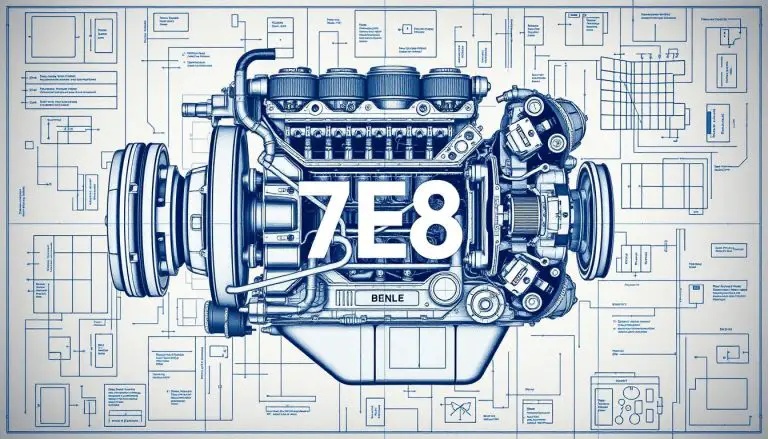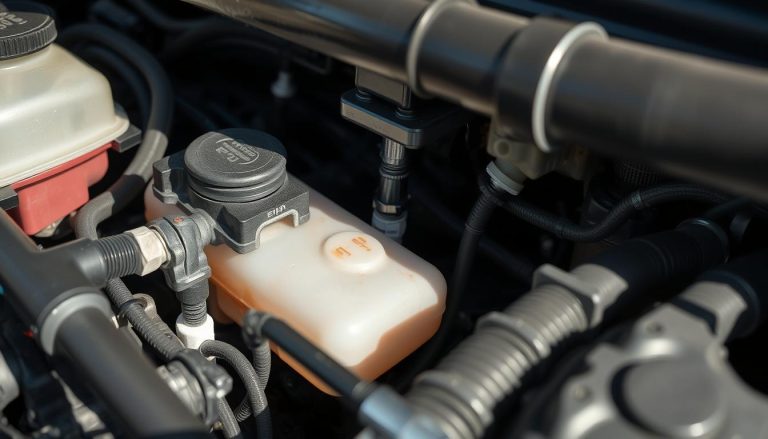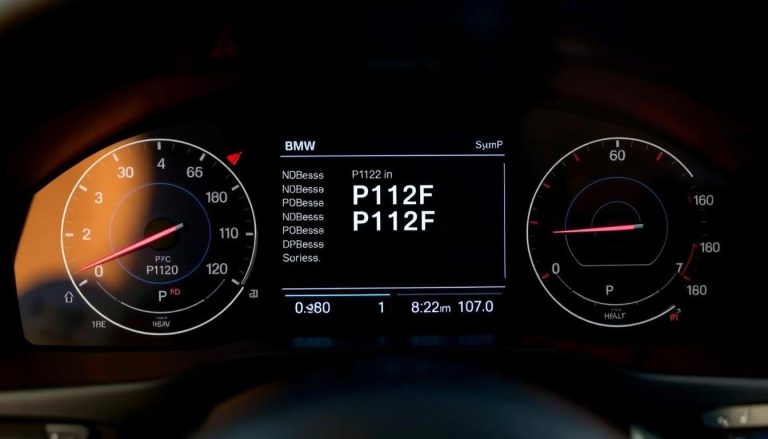Are you experiencing unusual performance issues with your vehicle? If the check engine light has popped on and you’re facing a P0049 code, it’s time to dive deeper. This code points to a turbocharger or supercharger turbine overspeed condition, and understanding it is crucial for maintaining your car’s health.
Ignoring this warning can lead to serious complications down the line. In this post, we’ll explore what the P0049 code means, its causes, symptoms, how to diagnose it effectively, and potential fixes.
What does the P0049 code mean?
The P0049 code is a diagnostic trouble code (DTC) that signals an issue with the turbocharger or supercharger in your vehicle. Specifically, it indicates turbine overspeed conditions.
When the engine control module (ECM) detects that the turbocharger or supercharger is spinning too fast, this code triggers. Overspeed can lead to severe damage if not addressed promptly.
This situation often arises due to mechanical failures or electronic malfunctions affecting boost pressure levels. It’s crucial for maintaining optimal performance and efficiency in turbocharged systems.
Understanding what this code entails helps you respond effectively before more complicated issues arise. Keeping an eye on your car’s performance and being aware of warning signs can save you from costly repairs down the road.
What are the possible causes of a P0049 code?
The P0049 code often points to issues with the turbocharger or supercharger system. One of the primary causes can be a malfunctioning wastegate. If this component fails, it can lead to excessive pressure in the turbine.
Another potential culprit is a faulty boost control solenoid. When this part doesn’t operate correctly, it may not regulate the air-fuel mixture effectively, resulting in overspeed conditions.
Additionally, damaged sensors such as the MAP (Manifold Absolute Pressure) sensor could send incorrect data to the engine control unit. This miscommunication might further exacerbate performance problems.
Excessive carbon buildup within the intake manifold can also restrict airflow and contribute to an imbalance that triggers this code. Mechanical failures like bearing wear or other internal damage in either a turbocharger or supercharger should not be overlooked as they can lead directly to overspeed scenarios.
What are the common symptoms of a P0049 code?
When your vehicle triggers a P0049 code, several symptoms might surface. One of the most noticeable signs is a drop in engine performance. You may find that acceleration feels sluggish or unresponsive.
Another common symptom is an increase in exhaust smoke. If you notice unusual amounts of smoke coming from the tailpipe, it could indicate issues with your turbocharger or supercharger.
You might also experience strange noises during operation. Whining, rattling, or grinding sounds can signal internal damage to the turbine assembly.
Additionally, check engine lights frequently illuminate on your dashboard when this code appears. Ignoring these signals can lead to further complications down the road.
Fuel efficiency often declines significantly with a P0049 error present. This could mean more frequent trips to the gas station and added expenses for drivers seeking optimal performance.
What are the diagnostic steps for a P0049 code?
Diagnosing a P0049 code requires a systematic approach. Start by connecting an OBD-II scanner to your vehicle’s diagnostic port. This will help you confirm the presence of the code and check for any additional trouble codes.
Next, inspect the turbocharger or supercharger system visually. Look for signs of damage or wear in hoses, pipes, and connections. Pay attention to vacuum lines as well; leaks can significantly impact performance.
After that, verify electrical components related to the turbine speed sensor. Check wiring harnesses for frays or loose connections that might affect signal transmission.
Then, consider testing the turbine speed sensor itself using a multimeter or oscilloscope. This will help determine whether it’s functioning correctly.
If everything appears normal yet issues persist, deeper mechanical diagnostics may be necessary to assess internal components like bearings and seals within the turbocharger system.
How serious Is the P0049 Code? Can I continue driving with the P0049 code?
The P0049 code indicates a turbocharger or supercharger turbine overspeed issue. This can lead to severe engine problems if left unaddressed.
Continuing to drive with this code can be risky. The overspeed condition may cause the turbocharger or supercharger to fail, potentially resulting in significant engine damage. You might experience reduced power and efficiency as well.
Ignoring the warning could also trigger other codes, compounding your vehicle’s issues. It’s best not to underestimate the seriousness of this diagnostic trouble code (DTC). If you notice any related symptoms, seeking immediate attention is advisable.
Driving with a P0049 code isn’t recommended for long distances or at high speeds. Prioritize diagnosing and fixing the underlying problem to ensure your vehicle runs smoothly and safely.
What are the repair solutions for a P0049 – Turbocharger/Supercharger Turbine Overspeed ?
Repairing a P0049 code often requires thorough inspection and targeted solutions. Start by checking the turbocharger or supercharger for any mechanical failures. Worn bearings or damaged turbine components can contribute to overspeed issues.
Another common solution involves assessing the vehicle’s boost control system. Faulty sensors or solenoids may need replacement to ensure they accurately regulate pressure levels.
Additionally, inspecting vacuum lines is crucial. Any leaks in these lines can lead to incorrect readings and affect performance.
Software updates might also be necessary if the engine control unit (ECU) isn’t managing boost correctly.
In some cases, replacing the entire turbocharger or supercharger assembly may be unavoidable. This is particularly true when extensive damage occurs that can’t be repaired easily.
Addressing all contributing factors promptly will help restore optimal function and prevent further complications down the road.
How long and How much does it cost to diagnose and repair a P0049 code?
The cost to diagnose a P0049 code can vary significantly based on the location and the shop’s labor rates. Typically, you might expect to pay between $100 and $200 for an initial diagnostic test. This often includes scanning your vehicle’s computer system for codes.
Once diagnosed, repair costs depend on the underlying issue causing the overspeed condition. Simple fixes like replacing a sensor may only run you around $150-$300. However, if major components like the turbocharger or supercharger need replacement, expenses could soar up to $1,500 or more.
Labor charges also play a critical role in total costs. If repairs are complicated and require extensive labor hours, it will naturally increase your final bill. Always request estimates beforehand so there are no surprises later on during repair work.
How can I avoid a P0049 code?
To avoid encountering a P0049 code, regular maintenance is key. Stay on top of your vehicle’s service schedule. This includes oil changes, filter replacements, and checking the turbocharger or supercharger system.
Monitor your engine for unusual noises or performance issues. Early detection can prevent bigger problems down the road.
Use high-quality fuel to ensure optimal combustion and reduce strain on your turbocharger or supercharger. Poor fuel can lead to inefficiencies that might trigger error codes.
Keep an eye on boost pressure readings with a gauge if possible. Consistent monitoring helps catch potential issues before they escalate.
Avoid aggressive driving habits that could put unnecessary stress on the turbine components. Smooth acceleration and deceleration extend the life of these critical parts and help you steer clear of trouble signs like the P0049 code.
What happens if you ignore a P0049 code?
Ignoring a P0049 code can lead to several complications. The turbocharger or supercharger may continue to operate inefficiently, resulting in decreased engine performance. You might notice sluggish acceleration and reduced power.
Long-term neglect could cause severe damage to your engine components. Prolonged turbine overspeed can lead to catastrophic failure of the turbocharger itself, which is costly to replace.
Fuel efficiency will likely suffer as well. A compromised system struggles to maintain optimal air-fuel ratios, leading you straight into higher fuel consumption and increased emissions.
Additionally, ignoring this warning might trigger further diagnostic trouble codes over time. This creates a cascading effect that complicates repairs down the line.
Your vehicle’s reliability may diminish too; unexpected breakdowns become more probable when critical systems are left unchecked. Regular maintenance becomes essential for preserving both safety and performance on the road.
Is the P0049 code specific to certain car makes or models?
The P0049 code is not limited to specific car makes or models. It can appear in a wide range of vehicles equipped with turbochargers or superchargers.
This includes everything from performance-oriented sports cars to everyday sedans and SUVs. Manufacturers often have different tuning strategies, but the underlying issue remains similar across brands.
Certain makes may experience this code more frequently due to design choices or components used in their forced induction systems. High-performance vehicles that push their engines harder might also face higher instances of overspeed situations.
Regardless of the brand, any vehicle with a turbocharger or supercharger could trigger the P0049 code if certain conditions are met. Awareness of this issue is crucial for all drivers, regardless of what they drive.
What other codes may be related to P0049?
When dealing with the P0049 code, it’s important to be aware of other codes that may indicate additional issues within your vehicle’s turbocharger or supercharger system. Codes such as P0299 (Turbo/Supercharger Underboost) and P0234 (Turbo Overboost Condition) can often accompany a P0049 code, suggesting problems with boost pressure regulation.
Additionally, related codes like P003A (Boost Control Position Sensor Range/Performance Problem) might point towards sensor malfunctions that affect performance. Addressing these related codes is crucial for comprehensive diagnostics and repairs.
If you encounter the P0049 code along with any of these others, consider a thorough inspection by a qualified technician to ensure all potential issues are resolved efficiently. Being vigilant about these connected diagnostic trouble codes will not only enhance your vehicle’s performance but also extend its lifespan on the road.


